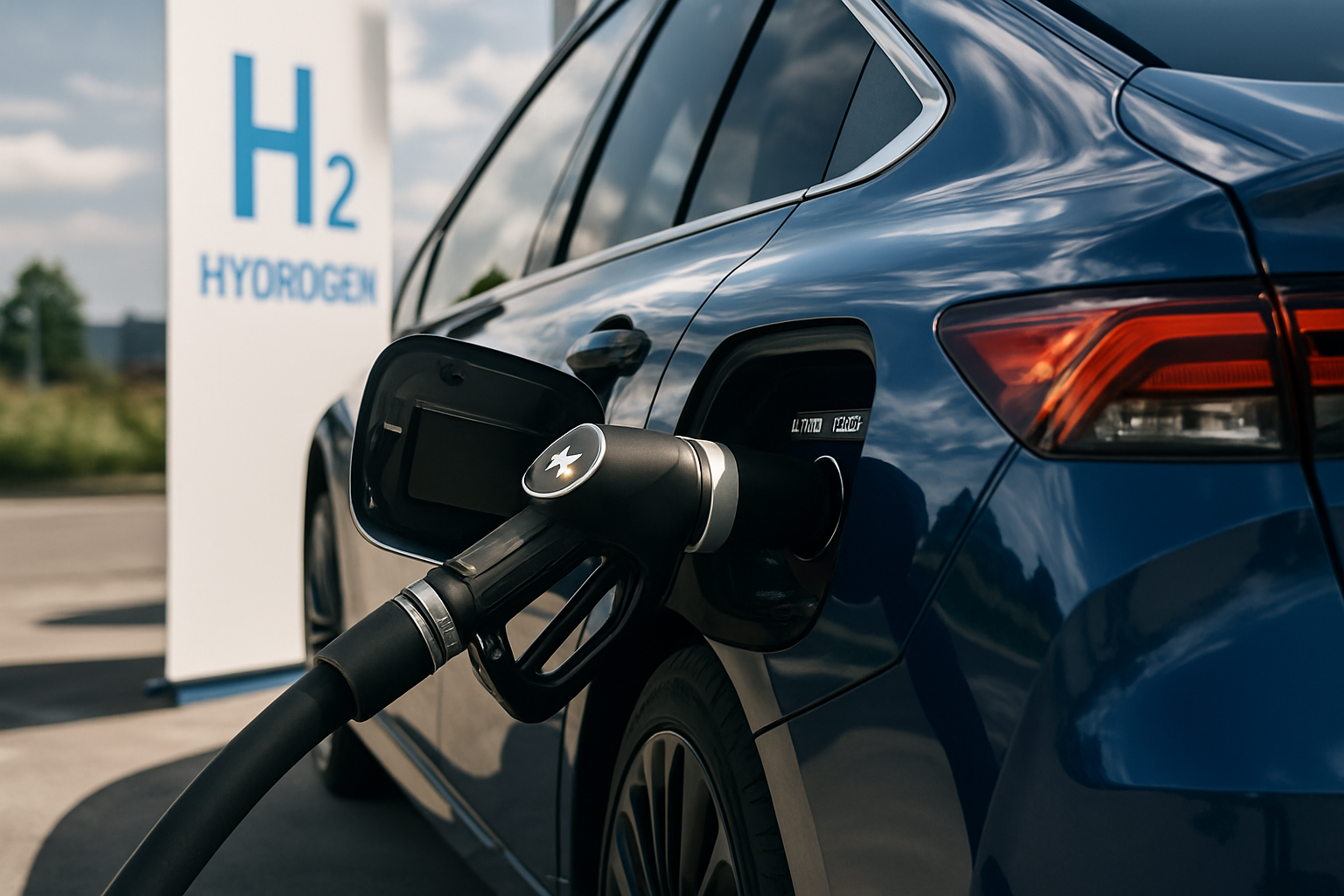Hydrogen Fuel Cell Vehicles: The Quiet Revolution in Automotive Technology
In a world grappling with climate change and seeking sustainable transportation solutions, hydrogen fuel cell vehicles (FCVs) are emerging as a promising alternative to traditional combustion engines. This groundbreaking technology combines the eco-friendly benefits of electric vehicles with the convenience and range of gasoline-powered cars. As automakers and governments invest heavily in hydrogen infrastructure, FCVs are poised to reshape the automotive landscape, offering a clean, efficient, and potentially game-changing solution for the future of mobility.

The fuel cell stack, composed of multiple individual cells, is the powerhouse of these vehicles. Each cell contains an anode, cathode, and electrolyte membrane. Hydrogen gas enters the anode, where it’s split into protons and electrons. The protons pass through the electrolyte membrane to the cathode, while electrons are forced through an external circuit, generating electricity to power the vehicle’s electric motor.
Refueling Revolution: Speed and Convenience
One of the most significant advantages of hydrogen fuel cell vehicles over battery electric vehicles is their refueling speed. While electric vehicles can take hours to fully charge, FCVs can be refueled in a matter of minutes, much like traditional gasoline-powered cars. This quick turnaround time addresses one of the main concerns consumers have with electric vehicles – range anxiety and long charging times.
The refueling process itself is straightforward and familiar to most drivers. Hydrogen is stored in high-pressure tanks at refueling stations and is pumped into the vehicle’s onboard storage tanks. These tanks are designed to withstand extreme pressures, ensuring the safety of the hydrogen fuel.
Range and Performance: Challenging Conventional Wisdom
Hydrogen fuel cell vehicles are breaking new ground in terms of range and performance. Many FCVs on the market today can travel over 300 miles on a single tank of hydrogen, rivaling and sometimes surpassing the range of traditional gasoline vehicles. This extended range, coupled with quick refueling times, makes FCVs a practical option for long-distance travel and daily commuting alike.
In terms of performance, FCVs offer smooth, quiet operation and instant torque characteristic of electric vehicles. The electric motors powered by fuel cells provide responsive acceleration and a driving experience that many find superior to internal combustion engines. Additionally, the weight distribution of FCVs, with fuel cells and hydrogen tanks often placed strategically in the vehicle’s chassis, can contribute to improved handling and stability.
Environmental Impact and Sustainability
The environmental benefits of hydrogen fuel cell vehicles extend beyond their zero-emission operation. While the production of hydrogen itself currently relies heavily on natural gas reforming, there is a growing push towards green hydrogen production using renewable energy sources. Electrolysis powered by solar or wind energy can produce hydrogen without any carbon emissions, creating a truly sustainable fuel cycle.
Moreover, hydrogen can be produced and stored during periods of excess renewable energy generation, effectively acting as a form of energy storage. This synergy between hydrogen production and renewable energy could play a crucial role in balancing the grid and making better use of intermittent renewable sources.
Challenges and Future Outlook
Despite their potential, hydrogen fuel cell vehicles face several challenges on the road to widespread adoption. The most significant hurdle is the lack of hydrogen refueling infrastructure. While countries like Japan and Germany are making substantial investments in hydrogen stations, the global network remains limited compared to traditional gas stations or even electric charging points.
The cost of producing and distributing hydrogen also remains a challenge, though economies of scale and technological advancements are expected to drive down prices in the coming years. Additionally, the efficiency of the overall hydrogen fuel cycle – from production to use in vehicles – is currently lower than that of battery electric vehicles, though this gap is narrowing with ongoing research and development.
Looking ahead, the future of hydrogen fuel cell vehicles appears promising. Major automakers are increasing their investment in FCV technology, with several models already available in select markets. Governments worldwide are recognizing the potential of hydrogen as a clean energy carrier, not just for transportation but for industry and power generation as well.
As we move towards a more sustainable future, hydrogen fuel cell vehicles represent a compelling option in the diverse landscape of clean transportation. With continued technological advancements and infrastructure development, FCVs could play a crucial role in reducing our carbon footprint and reshaping the automotive industry for generations to come.






